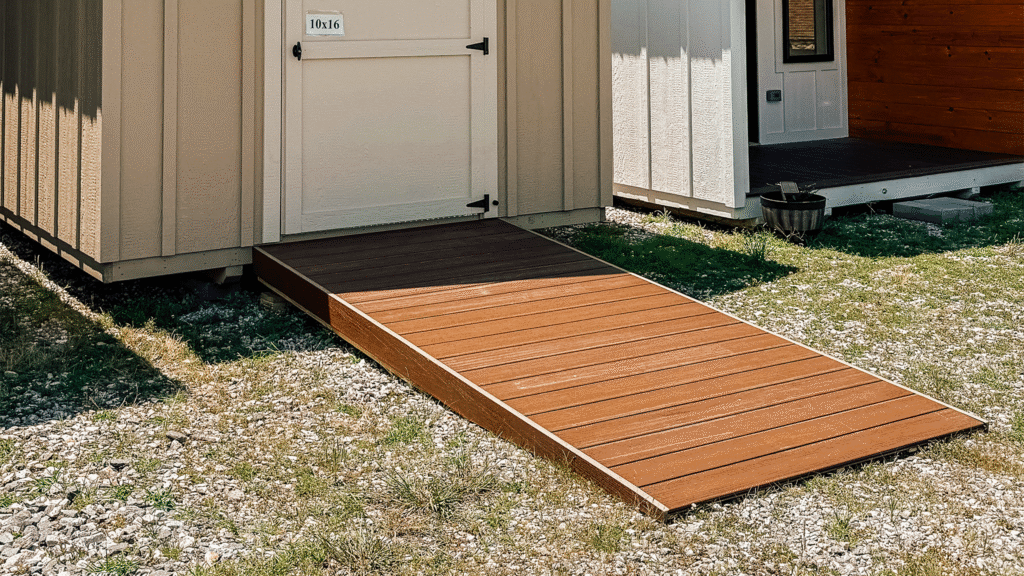
When designing outdoor spaces such as campgrounds, RV parks, or glamping sites, selecting the right decking material is one of the most crucial decisions you’ll make. Your choice impacts everything from durability and aesthetics to guest satisfaction, maintenance costs, and the long term value of your investment.
While traditional options like concrete and PVC are still in the mix, modular wooden and composite decks—especially premium options like Trex® composite decking—have emerged as superior solutions. These materials combine beauty, performance, and flexibility, offering outdoor business owners versatile options tailored to their unique needs.
In this post, we’ll walk you through key factors to consider when choosing decking materials and explain why modular wood and composite decks are the top choices for today’s outdoor spaces.
Modular decks are pre manufactured systems built off site and assembled quickly on location. They arrive in prefabricated sections that snap together with ease, offering faster installation, less site disruption, and greater design flexibility than traditional stick-built decks.
Benefits of Modular Deck Systems Include:
Wood vs. Concrete: Flexibility, Warmth, and Visual Appeal
While concrete is durable, it’s also cold, rigid, and permanent—making it less than ideal for natural settings or evolving campground layouts. It’s difficult to install on uneven terrain and costly to modify later.
Modular wooden decks offer the flexibility to adapt to your site, install easily on uneven ground, and deliver a warm, natural aesthetic that complements the outdoor environment—qualities concrete simply can’t match.
Wood vs. Composite: Maintenance, Durability, and Customization
Composite decking, particularly from brands like Trex, has revolutionized outdoor spaces. Trex composite decks offer the rich look of wood but with superior durability and far less maintenance.
Advantages of Composite Decking (Trex):
While high-quality pressure-treated wood remains cost-effective and naturally beautiful, composite decking like Trex is a fantastic alternative for those seeking a longer-lasting, lower-maintenance solution with greater design flexibility.
Wood vs. PVC: Sustainability and Value
PVC decking is durable but made from entirely synthetic materials, raising sustainability concerns. It also tends to be one of the most expensive options with a plastic-like appearance that may not fit rustic or natural settings.
In contrast, modular wooden decks offer a more eco-conscious solution, made from renewable resources and treated for maximum longevity. Similarly, Trex composite decking provides an environmentally friendly option by repurposing plastic and wood waste into high-quality building materials.
Whether you choose modular wooden decks or composite options like Trex, you’ll enjoy key benefits:
When guests visit your site, they’re looking for comfort, beauty, and a strong connection to nature. Both modular wooden decks and Trex composite decks enhance the guest experience by offering:
When it comes to designing outdoor spaces that are functional, beautiful, and sustainable, modular wooden and composite decks stand out as the best choices.
Combine all three to get the lowest price per square foot and 10% off every add-on.